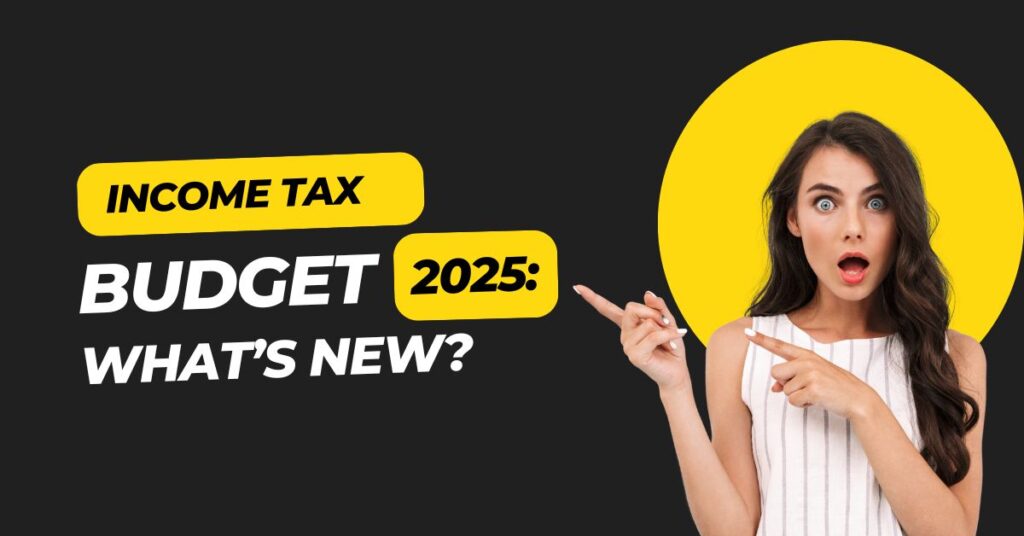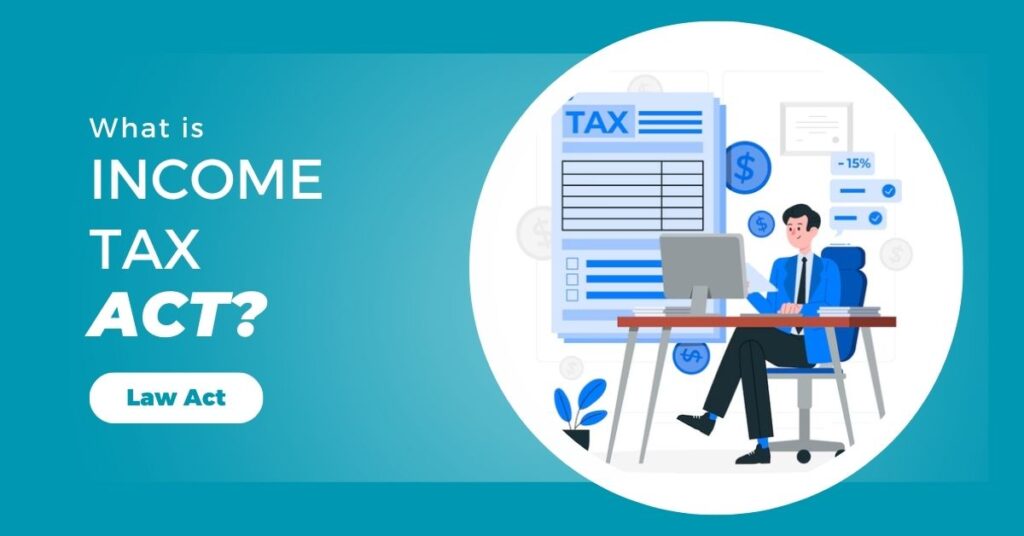The Income Tax Budget 2025 is the Indian Government’s latest plan for managing the country’s money, especially related to how people and businesses will pay taxes in the year 2025-26.
Each year, the government presents a Union Budget. It explains how much money the government plans to spend and where it will get that money from — mainly through taxes like income tax, corporate tax, GST, and others.
In the Budget 2025, there were several important changes made to income tax rules, aiming to make things easier and better for the middle-class people, salaried individuals, and senior citizens.
The main goal of these changes is to help people save more money, spend more on things they need, and also help the country’s economy grow faster.
Key Changes in Income Tax Slabs
One of the biggest announcements was the change in income tax slabs under the new tax regime. The government wants to encourage more people to move to the new system by making it more attractive.
Here’s a simple table showing the new tax rates:
| Annual Income (₹) | Tax Rate (%) |
|---|---|
| Up to ₹4,00,000 | 0% |
| ₹4,00,001 – ₹8,00,000 | 5% |
| ₹8,00,001 – ₹12,00,000 | 10% |
| ₹12,00,001 – ₹16,00,000 | 15% |
| ₹16,00,001 – ₹20,00,000 | 20% |
| ₹20,00,001 – ₹24,00,000 | 25% |
| Above ₹24,00,000 | 30% |
Other Important Points:
- The standard deduction (which reduces your taxable income) has been increased from ₹50,000 to ₹75,000 for salaried people and pensioners.
- This means salaried people can save even more on taxes.
- The tax rebate limit has been raised — meaning people earning up to ₹12 lakh don’t have to pay any tax after claiming deductions.
Benefits for Taxpayers
These changes mean good news for many taxpayers. Here’s how:
- People who earn up to ₹12 lakh annually will not pay any income tax.
- If you are a salaried employee and claim the standard deduction, you can earn up to ₹12.75 lakh without paying tax.
- If you earn ₹18 lakh per year, you could save about ₹70,000 in taxes compared to last year.
- If you earn ₹25 lakh per year, you might save more than ₹1.1 lakh in taxes.
In short: more savings, more spending power, and a little extra money in your pocket every month!
Relief for Senior Citizens
The government has also announced special benefits for senior citizens. Here’s what they get:
- Interest Income Deduction Increased: Senior citizens can now claim a deduction up to ₹1 lakh on the interest they earn from savings, fixed deposits, and other accounts. Earlier, it was only ₹50,000.
- Higher TDS Limit on Rent: If a senior citizen earns income by giving a house on rent, the TDS (tax deducted at source) limit has been raised from ₹2.4 lakh to ₹6 lakh.
These changes will help senior citizens to save more and have less hassle with tax paperwork.
Incentives for Homebuyers
The government wants more people to invest in houses. That’s why they announced:
- Tax benefits for second homes: If you take a loan to buy a second residential property, you can enjoy certain tax benefits.
- Lower Stamp Duty in Some Cities: To make homes more affordable, stamp duty charges have been reduced in some selected areas.
This move is expected to boost the real estate sector and help more people own homes easily.
Extended Time for Filing Updated Returns
Sometimes, people make mistakes when filing their income tax returns, or they realize later that they forgot to include something important.
Now, the government has made life easier:
- Earlier, people had 2 years to update their tax returns if needed.
- Now, you will get 4 years to file an updated return.
This extra time gives taxpayers more flexibility and helps them correct mistakes without penalties.
How Will It Help India’s Economy?
All these changes are not just to help individuals — they also aim to boost India’s economy. Here’s how:
- More money in people’s hands means they will spend more on goods and services.
- This increase in spending will help businesses grow and create more jobs.
- More investments in real estate will push the construction sector and related industries like cement, steel, and furniture.
In simple words: when people spend more, businesses grow, jobs are created, and the country becomes stronger.
Summary Table of Key Benefits
| Feature | Old Regime | New Regime (Budget 2025) |
|---|---|---|
| Zero Tax Limit (Salaried) | ₹5 lakh | ₹12 lakh (after deductions) |
| Standard Deduction | ₹50,000 | ₹75,000 |
| Senior Citizen Interest Deduction | ₹50,000 | ₹1 lakh |
| Updated Return Filing Period | 2 years | 4 years |
Final Thoughts
The Income Tax Budget 2025 is designed with the common man in mind.
✅ It helps middle-class families by increasing the tax-free income limit.
✅ It supports senior citizens by giving more deductions.
✅ It encourages people to buy homes by giving real estate benefits.
✅ It also simplifies things by giving more time to update tax returns.
If you are a taxpayer, you should:
- Check which tax regime suits you better — the old one or the new one.
- Use the new standard deductions wisely.
- Plan your investments and expenses smartly to save even more tax.
Tip: Always take help from a tax expert if you are unsure about anything. A little advice can save you a lot of money!
Also Read:
- Section 92BA of the Income Tax Act
- Income Tax Act eBook: Everything You Need to Know
- What is Income Tax Act?
- Income Tax Act 1961 – Explained
Frequently Asked Questions
What is the Income Tax Budget 2025?
The Income Tax Budget 2025 is the government’s new plan that changes income tax rules for the coming year. It explains how much people will pay in taxes and what benefits they can enjoy. It helps both individuals and businesses save more and manage money better.
What are the new income tax slabs for 2025?
In Budget 2025, new income tax slabs were announced to help people save more. Income up to ₹4 lakh is tax-free. After that, different percentages are applied based on your earnings. Higher incomes will have higher tax rates, but savings have increased for many.
Who benefits from the Budget 2025 changes?
The Income Tax Budget 2025 mainly helps salaried individuals, middle-class families, and senior citizens. It increases the tax-free income limit and standard deduction. It also provides more benefits for people earning interest and those buying a new home.
What is the standard deduction for salaried people?
In the new Budget 2025, the standard deduction for salaried employees has increased from ₹50,000 to ₹75,000. This means a portion of your income will not be taxed, helping you save more money every year without doing any extra paperwork.
How much income is tax-free after Budget 2025?
After the Income Tax Budget 2025, individuals earning up to ₹12 lakh annually may not have to pay any tax if they use the standard deduction and tax rebate benefits properly. It gives major relief to the middle-income group.
What are the tax benefits for senior citizens?
Senior citizens now get double the deduction on their interest income, up to ₹1 lakh. They also enjoy a higher limit for TDS on rental income. These changes make it easier for senior citizens to manage their finances and avoid unnecessary tax deductions.
Can taxpayers update their returns later?
Yes, taxpayers can now update their income tax returns for up to 4 years from the end of the assessment year. Earlier, they had only 2 years. This extra time allows people to correct mistakes and avoid heavy penalties if something was missed.
Are there benefits for homebuyers in Budget 2025?
Yes, the government has introduced extra tax benefits for homebuyers, especially for those buying a second home. In some areas, stamp duty rates have also been reduced. This makes it easier and cheaper for people to buy property in 2025.
Which tax regime is better: old or new?
It depends on your income and deductions. The new regime has lower tax rates and a higher standard deduction but fewer exemptions. If you have many investments and deductions, the old regime might be better. Always compare both options carefully.
Why is Budget 2025 important for the economy?
Budget 2025 is important because it puts more money in people’s hands. When people have more money, they spend more, which helps businesses grow and creates jobs. It also makes it easier for people to save and invest for their future goals.



